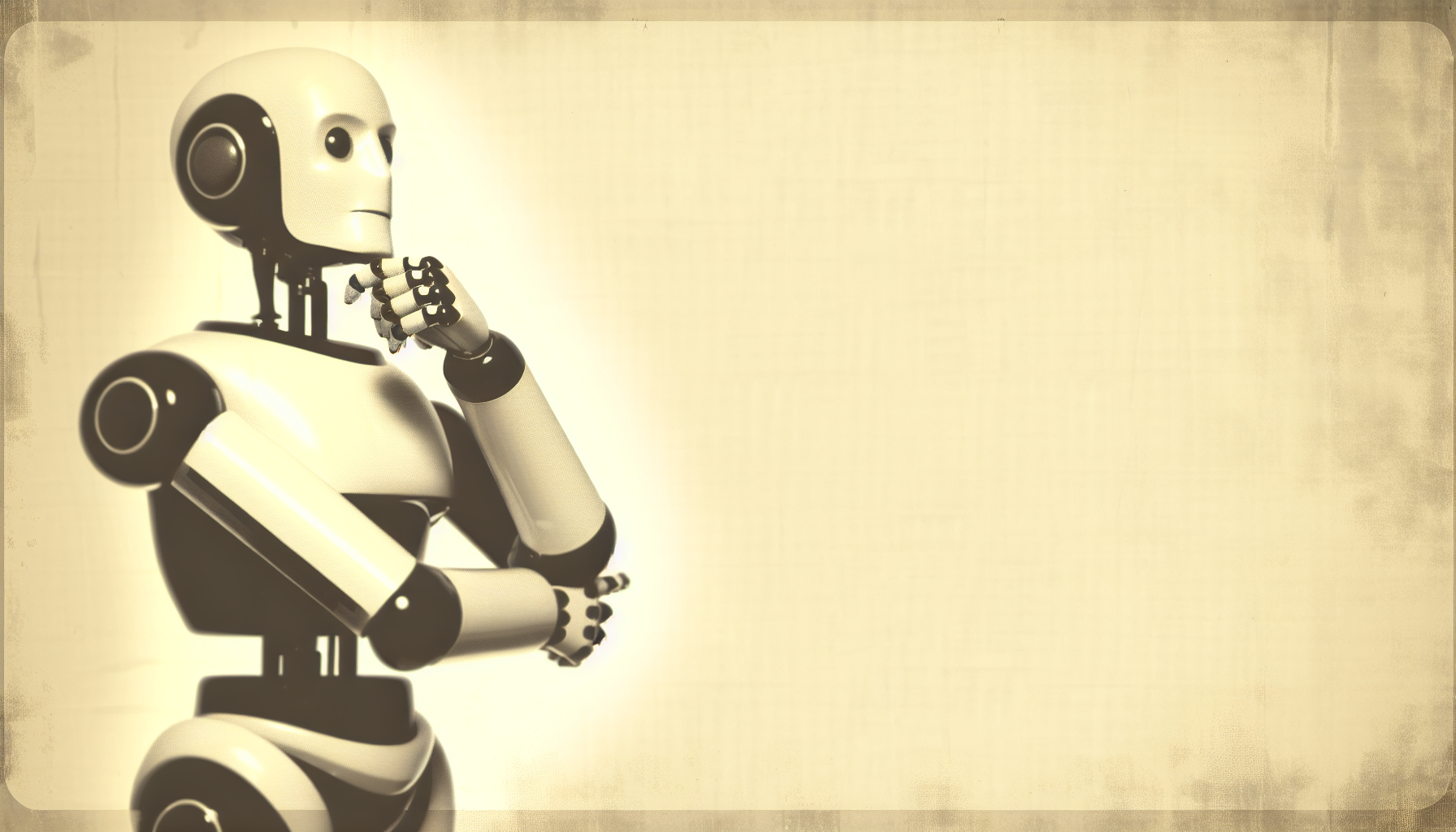In the grand adventure of philosophical inquiry, especially when it comes to artificial intelligence, we often find ourselves asking questions that might seem a bit lofty or even downright baffling. One of these head-scratchers is the concept of whether machines can truly “know” anything. It’s essential to indulge in this question for it touches on the very essence of intelligence itself. Let’s dig in, and see if we can unravel this tangled skein of epistemology and artificial intelligence, but don’t worry—we’ll try to keep the head spinning to a minimum.
The Nature of Knowledge
Before we jump into the metallic maw of AI, let’s take a moment to understand what we mean by “knowledge.” In simple terms, knowledge has often been defined as “justified true belief.” It means having information not only plugged into your mental hard drive but also possessing good reasons for believing that information to be true and, just as importantly, that the information is actually true.
Now, one might argue that humans barely pass this test on a good day! We’re all a little guilty of spreading urban myths or trusting dubious online articles. However, when it comes to AI, we want to hold it to strict standards. Is this fair? Perhaps. After all, we are entrusting many aspects of our lives to it.
Data Versus Understanding
AI systems are particularly excellent at handling data—scads of glorious data. From this data, machines can identify patterns, make predictions, and even compose sonnets that rival certain brooding nineteenth-century poets. But do they “understand” what they’re doing? Here lies the rub.
To put it humorously, an AI doesn’t have its own “aha” moments, a realization that makes you feel like Newton under an apple tree. Machines process information without any insight into the meaning behind it. While a human reads and interprets “The Great Gatsby” and feels the pangs of Gatsby’s longing, AI simply registers phrases, patterns, and perhaps sentiment without any notion of symbolic interpretations or emotions.
Justification in Machine Learning
For a machine to claim it knows something in the human sense, it would not only need to have information but also justified reasons for believing it to be true. In the world of AI, this justification often comes in the form of algorithms and statistical models. These models are frightfully good at devising outputs that, on paper, look informed.
However, the justification in machine learning doesn’t enjoy a roundtable discussion like some great council of AI wizards. Instead, it’s built on probability, previous occurrences, and inference. The AI doesn’t possess reasoning but mimics it, drawing on vast datasets. It’s not like a good old-fashioned courtroom drama where AI dramatically presents its evidence; it’s more akin to a calculator inexplicably being asked how it arrived at 2+2 equals 4.
Can an AI “Believe”?
Belief is a crucial aspect of knowledge. It requires conviction and, well, belief itself—something that doesn’t sit well with machines. Machines don’t believe or disbelieve; they execute and process. They don’t experience doubt, a broken heart, or find themselves at existential crossroads (though it does make you wonder what an AI midlife crisis would look like).
This absence of genuine belief raises a significant roadblock on the path toward machines truly knowing something. Without the capacity to believe, AI fails to complete the triumvirate of knowledge as justified true belief. If AI is the philosopher, it’s forever stuck in the first semester.
The Role of AI’s “Know-How”
While AI might struggle with propositional knowledge (knowledge-that), it’s a titan when it comes to procedural knowledge (knowledge-how). While we might debate whether a vehicle’s GPS “knows” the streets and alleys of a bustling city, it undeniably excels in navigating them. Its knowledge-how is not philosophical but undeniably effective.
Imagine an AI cooking a gourmet meal, sautéing and searing with robotic grace. It doesn’t “know” the food tastes good or bad but flawlessly replicates a complex recipe. It’s akin to the difference between someone knowing music theory and being a virtuoso guitarist. The latter creates magic without needing to “know” each note’s role in harmony.
Conclusion: An Uneasy Truth
So, can machines truly “know”? At its core, the answer leans towards “perhaps not,” at least not in the sense that philosophers, poets, and puppies “know” things. AI can simulate understanding, execute tasks with stunning precision, and present an illusion of sentience, but it’s still missing that ineffable spark of human-like insight.
Still, this doesn’t diminish AI’s capabilities or its growing importance in our lives. Machines may not know like a sage on a mountaintop, but they can certainly guide us, inform us, and, sometimes, entertain us with their quirks—much like your favorite eccentric uncle.
So, the next time you ponder if your voice-activated assistant “understands” your frustration about the traffic, consider the deeper question of what it means to know. Until machines join the coffee shop philosophers debating the mysteries of the universe, we can appreciate their utility without the illusion that they grasp the world in quite the same way we do.

Leave a Reply